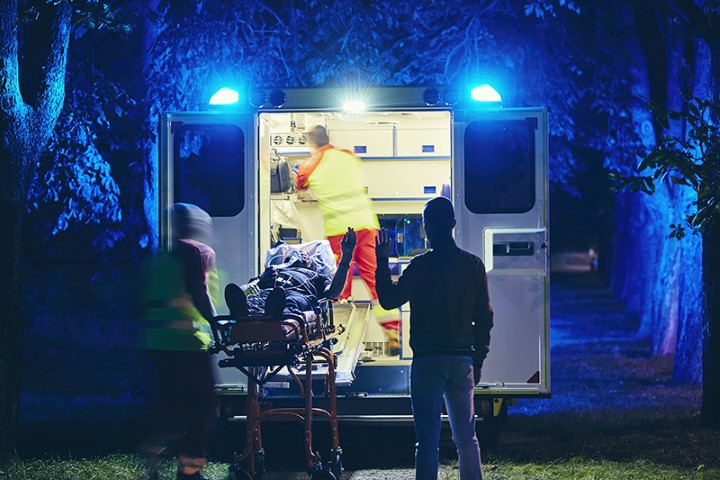Bio-degradable cards
Every card imaginable!
|
Bio-degradable cards Every card imaginable! How to Get a DNR Order in the UK
A Guide to Do Not Resuscitate (DNR) Orders in the UKFacing a serious illness or thinking about end-of-life care can be really tough, and one of the important decisions that might come up is about a Do Not Resuscitate (DNR) order. While the formal medical term you might hear from doctors is "Do Not Attempt Cardiopulmonary Resuscitation" (DNACPR), many people, including healthcare staff, often just say "DNR." Essentially, a DNR is a clear instruction to doctors and nurses that you don't wish for CPR (cardiopulmonary resuscitation) to be performed if your heart or breathing stops. This guide is here to walk you through how DNR decisions are made in the UK. We'll cover the steps involved, what the law says, and offer some advice to help you and your family understand this sensitive topic better. Table of ContentsWhat a DNR (DNACPR) Means for YouLet's start by understanding what a DNR, or DNACPR as it's formally known, is all about. CPR is a medical procedure used in emergencies to try and restart someone's heart and breathing. It can involve:
While CPR can be lifesaving in some situations, especially for sudden problems in otherwise healthy people, it might not always be the best choice, especially if you have a serious illness that's getting worse, like advanced cancer, severe heart problems, or advanced dementia. In these situations, CPR can sometimes cause more harm than good, like broken ribs, lung damage, or even brain damage from lack of oxygen, without really helping you get better or improving your quality of life. Sometimes, it might just prolong suffering. A DNR decision is all about making sure your wishes for end-of-life care are respected. It aims to prevent unnecessary discomfort and allow you to keep your dignity during your final moments. It helps make sure that the medical care you receive matches your personal values, beliefs, and what's most important to you about how you live your life. It's really important to remember that a DNR order only applies to CPR. It doesn't mean that you won't receive any other medical care. You'll still get all the appropriate treatments for pain relief, managing other symptoms, or conditions like infections. The focus remains on making you comfortable and supporting your well-being. Starting the Conversation About DNRTalking about DNR can feel daunting, but it's a really important part of planning for your future care. Ideally, this conversation should come up naturally as you discuss your overall care preferences with your doctors. If you have a long-term or serious illness, or if you're getting older and your health is declining, it's a good idea to bring up your wishes with your GP or specialist medical team. You don't have to wait for them to start the conversation. These discussions can be emotional for everyone involved, but they are absolutely essential for making choices that truly reflect what you want and what matters most to you. Doctors and nurses are trained to have these sensitive conversations with kindness and understanding. You might start by saying something like, "I've been thinking about my future care, and I'd like to talk about what would happen if my heart or breathing stopped." Talking with Your Healthcare TeamA DNR decision is a medical one, and it needs to be made in discussion with, and formally recorded by, a qualified healthcare professional. Usually, your main doctor (like your GP or a hospital consultant) will be the one to talk about DNR, especially if they believe:
These discussions can happen in different places, depending on your situation:
Your healthcare professional should explain everything clearly, honestly, and sensitively, using words that are easy for you to understand, not complicated medical jargon. They should tell you about your likely future health, what might happen if you had CPR, and what choosing a DNR would mean. Making the Decision TogetherThe decision to have a DNR order should be made collaboratively, meaning it involves you (if you're able to participate), your family or chosen representatives, and your healthcare team. Your wishes and what you prefer are the most important part of this whole process.
In cases where you haven't made any formal advance decisions and can't make choices now, your healthcare team will rely heavily on input from those closest to you to understand what you would have wanted. Writing Down Your DNR DecisionOnce a DNR decision has been carefully discussed and agreed upon, it's vital that it's properly and clearly written down. This usually happens on a specific DNR or DNACPR form. The exact form might look a bit different depending on where you are in the UK (for example, there are specific forms like the ReSPECT form or local DNACPR forms), but they all generally include:
It's extremely important that this completed form stays with you if you move between different care places – for example, if you go from home to hospital, between different wards, or from hospital to a care home. This way, your wishes are always clear and respected by everyone involved in your care, no matter where you are. Copies should also be kept in your medical records (both paper and electronic), and you or your family will often be offered a copy to keep for your own records. Your Rights and Legal Points to ConsiderIn the UK, DNR decisions are legally significant and must be respected by all healthcare professionals caring for you. There are some key legal and ethical ideas that guide this process:
You and your family have important rights throughout this process:
Reviewing and Changing Your DNR DecisionDNR orders aren't set in stone; they should be looked at regularly, as things can change. This is especially important if your medical condition changes significantly (whether it gets better or worse), or if your own wishes or life circumstances evolve. Regular reviews help make sure your DNR decision is still right for you, medically appropriate, and always matches your current health, likely future, and personal wishes.
Any changes made to your DNR order – whether confirming it still stands, making alterations, or cancelling it completely – must be fully documented. This updated information needs to be clearly communicated to you (if appropriate), your family, and all healthcare professionals involved in your care. This prevents any confusion and ensures that your care continues to be respectful of your choices. Helpful Tips for Families and CarersGoing through the DNR decision-making process can be an emotional and tricky journey for families and carers. Here are some friendly tips to help you through it:
Deciding on a DNR order in the UK is a very personal and often complex process that relies on clear communication, well-informed choices, and a deep respect for your wishes and right to make your own decisions. At its heart, it's about making sure you have dignity, comfort, and the best possible quality of life at the end, by avoiding medical actions that might not fit with your health goals or personal values. By having these open conversations with your healthcare team and loved ones, and by understanding the legal and ethical guidelines, you and your family can navigate the DNR decision-making process with more clarity, confidence, and peace of mind. 
© 2024 The Card Project Uk Ltd
VAT: 453 2087 06
|